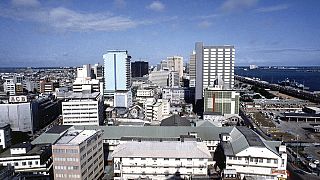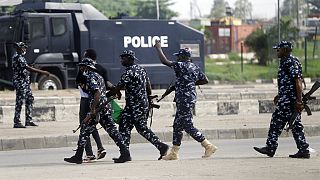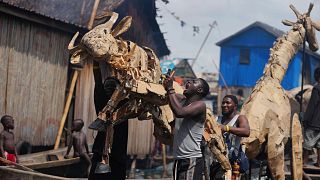Nigeria
A Nigerian gang leader has accepted a truce offered by authorities in the northwestern state of Zamfara, which has been wracked by years of deadly violence, a local official said Monday.
Band leader Bello Turji has agreed to end attacks and kidnappings for ransom, Zamfara state deputy governor Hassan Nasiha told a news conference broadcast on local stations.
"We have reached a peace agreement with Turji, and in the last six weeks not a single person has been killed in the areas he controls," Nasiha said. He said Turji is now fighting with other gangs that have refused to lay down their arms.
Heavily armed bandits have been terrorising communities in the area for years, looting villages, killing and abducting people and burning houses.
In exchange for laying down their arms, the deputy governor said the bandits had demanded an end to extrajudicial killings of members of their ethnic community and the release of gang members arrested by law enforcement.
Many of the bandits are pastoralists, and among the conditions of the truce, they also demanded the restoration of water points and grazing reserves and the return of their farmland seized as loot by local communities.
The local authorities agreed to all the demands, despite several previous attempts at peace agreements with bandits that did not last.
According to Bulama Bukarti, an analyst at the Tony Blair Institute for Global Change, Turji himself has violated peace agreements in the past.
"Turji never paid for his atrocities... This is a deal made in a hurry by desperate politicians to score points before the next elections," he said on Twitter.














Go to video
Benin says 54 soldiers killed in Islamic militant attack
Go to video
Burkina Faso military government says it thwarted "major" coup attempt
02:19
In Ghana, an illegal settlement turned a forest reserve into a criminal city
Go to video
Protesters in Haiti demand protection against gangs
Go to video
EU and Egypt sign agreement to boost cooperation against organised crime
Go to video
Africa’s trade winds shift amid tariffs, reforms, and regional tensions {Business Africa}